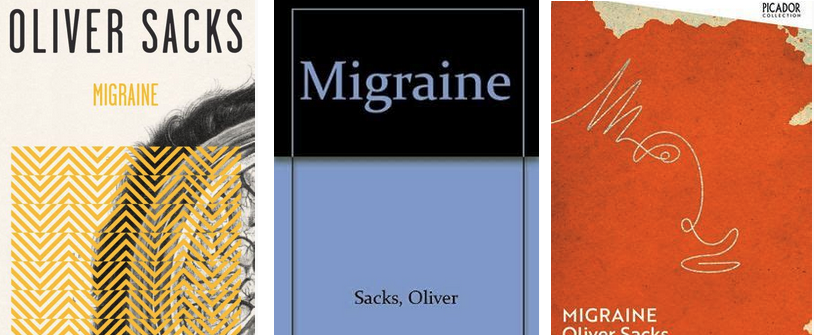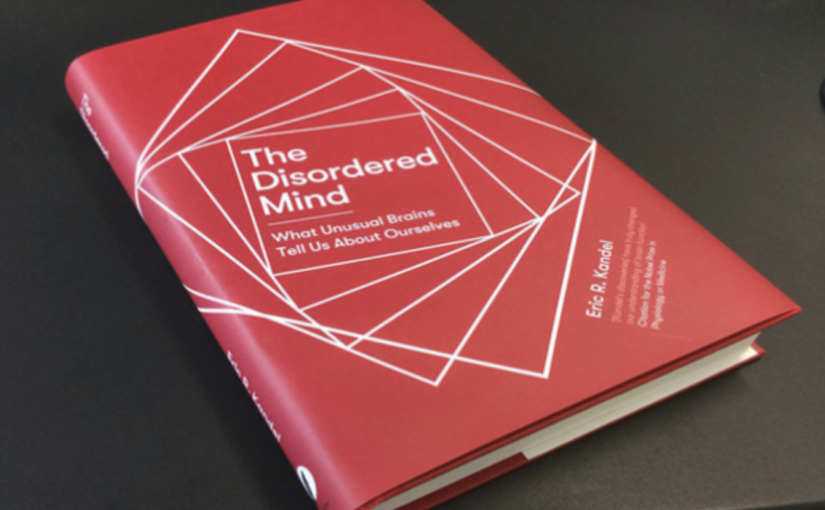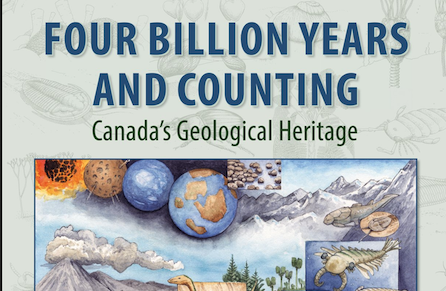*Migraine (Revised and expanded), Oliver Sacks, 1992
This is the 18th volume in the “Essays Project.” While the Essays Project has focused mainly on essays, we became intrigued with Oliver Sacks and are taking something of a detour to read his complete work, essays or not.
[[More to come…]]
Front Matter
There are prefaces to the original edition, and, to this, the 1992 edition. There is also a forward by William Gooddy, a migraine specialist whom Sacks praises in his prefaces. There is also a historical introduction, which summarizes over 2,000 years of medical writing on migraine; I will pass on summarizing this.
The following, from the ’92 Preface, is Sacks’ comment on the aims of the book; I think his thoughts on why humans may need to be ill, for a brief time, will be very interesting.
Migraine, of course, is not just a description, but a meditation on the nature of health and illness, and how, occasionally, human beings may need, for a brief time, to be ill; a meditation on the unity of mind and body, on migraine as an exemplar of our psychophysical transparency; and a meditation, finally, on migraine as a biological reaction, analogous to that which many animals show.
–Oliver Sacks, Migraine, xv
I. The Experience of Migraine
C1. The Common Migraine
As I read through this chapter, the vast range of symptoms and manifestations attributed to Migraine would seem to defy any sort of classification. However, Sacks grapples with this by describing constellations of symptoms, and also sequences of symptoms/constellations, and leaves me with the sense that Migraine really is a distinct and identifiable entity.
One thing which I think, perhaps, he does not emphasize enough is that migraine recurs over the course of months and years, and I think that it is this pattern of recurrence (even though the symptoms may change completely) that I find most convincing.
Sacks’ high level description is that there is a prodomal phase (when the first hints of what is coming occur), the attack proper, resolution, and finally rebound. I’m particularly struck by the fact that both prodomal and rebound phases may often (but not invariably) include feelings of great well-being.
II. The Occurrence of Migraine
This section examines when migraines occur, and divides them into periodic (occurring a particular times and with particular rhythms of occurrence), circumstantial (appearing in response to particular circumstances), and situational (as a reaction to intolerable situations such as stress).
III. The Basis of Migraine
We skimmed this section, except for focusing on the psychological causes of migraine.
IV: Therapeutic Approaches to Migraine
We only skimmed this section. As the title suggests, it has to do with approaches to avoiding, ameliorating or otherwise treating migraines.
V: Migraine as a Universal
This section is really just one chapter which is on Migraine Aura and Hallucinatory Constants. It discusses, and tries to systematize the types of hallucinations seen during the migraine aura phase. There are three types: phosphenes (stars and scintillating points of light); spectra: the classical expanding scotoma with its ‘fortification edges’; dynamic geometric patterns (grids, mosaics, spirals, etc.)
The interesting thing about these hallucinatory phenomena is the possibility that they are a direct reflection of activity and function of cortical cells. For example, the ‘fortifications’ around the edge of a scotoma may (perhaps) be produced by groups of edge/orientation detecting cells. Similarly, Alan Turing described how waves of chemical reactions can give rise to regular geometric patterns in “The Chemical Basis of Morphogenesis.”
Another thing this brought to mind was John Conway’s Game of Life, in which 2D cellular automata with simple rules can produced spreading and repeating patterns of activity. See the wikipedia article. One wonders if the cortex, when undergoing a migraine, can generate such spreading and repeating patterns.
# # #
Views: 0




